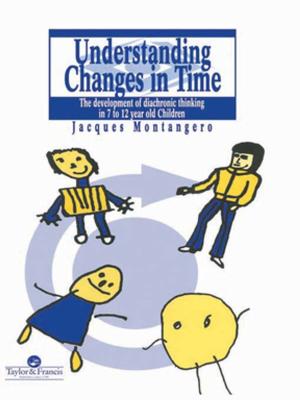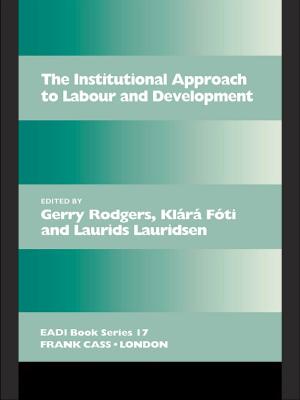UN Millennium Development Library: Innovation
Applying Knowledge in Development
Business & Finance, Economics, Economic Development| Author: | UN Millennium Project | ISBN: | 9781136550348 |
| Publisher: | Taylor and Francis | Publication: | June 17, 2013 |
| Imprint: | Routledge | Language: | English |
| Author: | UN Millennium Project |
| ISBN: | 9781136550348 |
| Publisher: | Taylor and Francis |
| Publication: | June 17, 2013 |
| Imprint: | Routledge |
| Language: | English |
The Millennium Development Goals, adopted at the UN Millennium Summit in 2000, are the world's targets for dramatically reducing extreme poverty in its many dimensions by 2015 income poverty, hunger, disease, exclusion, lack of infrastructure and shelter while promoting gender equality, education, health and environmental sustainability. These bold goals can be met in all parts of the world if nations follow through on their commitments to work together to meet them. Achieving the Millennium Development Goals offers the prospect of a more secure, just, and prosperous world for all. The UN Millennium Project was commissioned by United Nations Secretary-General Kofi Annan to develop a practical plan of action to meet the Millennium Development Goals. As an independent advisory body directed by Professor Jeffrey D. Sachs, the UN Millennium Project submitted its recommendations to the UN Secretary General in January 2005. The core of the UN Millennium Project's work has been carried out by 10 thematic Task Forces comprising more than 250 experts from around the world, including scientists, development practitioners, parliamentarians, policymakers, and representatives from civil society, UN agencies, the World Bank, the IMF, and the private sector. This report argues that meeting the Millennium Development Goals will require a substantial reorientation of development policies to focus on key sources of economic growth, particularly the use of scientific and technological knowledge and related institutional adjustments. It outlines key areas for policy action, including focusing on platform or generic technologies; defining infrastructure services as a foundation for technology; improving higher education in science and placing universities at the center of local development; spurring entrepreneurial activities; improving the policy environment; and focusing on areas of under-funded research for development.
The Millennium Development Goals, adopted at the UN Millennium Summit in 2000, are the world's targets for dramatically reducing extreme poverty in its many dimensions by 2015 income poverty, hunger, disease, exclusion, lack of infrastructure and shelter while promoting gender equality, education, health and environmental sustainability. These bold goals can be met in all parts of the world if nations follow through on their commitments to work together to meet them. Achieving the Millennium Development Goals offers the prospect of a more secure, just, and prosperous world for all. The UN Millennium Project was commissioned by United Nations Secretary-General Kofi Annan to develop a practical plan of action to meet the Millennium Development Goals. As an independent advisory body directed by Professor Jeffrey D. Sachs, the UN Millennium Project submitted its recommendations to the UN Secretary General in January 2005. The core of the UN Millennium Project's work has been carried out by 10 thematic Task Forces comprising more than 250 experts from around the world, including scientists, development practitioners, parliamentarians, policymakers, and representatives from civil society, UN agencies, the World Bank, the IMF, and the private sector. This report argues that meeting the Millennium Development Goals will require a substantial reorientation of development policies to focus on key sources of economic growth, particularly the use of scientific and technological knowledge and related institutional adjustments. It outlines key areas for policy action, including focusing on platform or generic technologies; defining infrastructure services as a foundation for technology; improving higher education in science and placing universities at the center of local development; spurring entrepreneurial activities; improving the policy environment; and focusing on areas of under-funded research for development.















